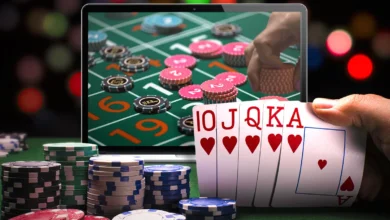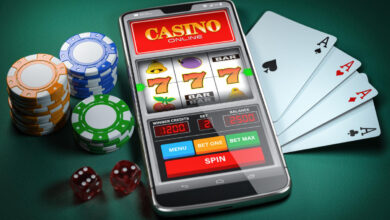Alluring Trap of Chasing Casino Losses

The bright lights and exciting sounds of platforms like Casino LuckyWins can draw visitors into a tempting fantasy world far from life’s daily troubles. The house edge built into every game means that the odds always favor the casino eventually. Many gamblers fall into the trap of trying to recoup their mounting losses by continuing to bet more money, often with disastrous financial and psychological consequences.
Loss Chasing Spiral
Chasing losses occurs when a gambler continues making more and more bets to win back previous losses. This often results in the gambler losing even more money and spurring them to double down on their betting in hopes of finally coming out ahead.
This kind of loss chasing can quickly snowball into catastrophic losses that massively outstrip the gambler’s original bankroll. For example:
- Amanda starts with $200 to gamble with for the night
- She loses her first $50 bet and immediately places another $75 bet trying to win it back
- She loses again, gets frustrated and bets $150 trying desperately to recoup her prior losses
- Several quick $200 and $300 bets later, Amanda has now lost over $1000
Loss Chasing Mindset
Why do people fall into this loss chasing trap, often knowing they face terrible odds? A few key psychological factors often drive this harmful behavior:
Desperation Mindset
After losing their first bets, gamblers feel desperate not to leave the casino as a “loser.” The fear of losing now overrides rational assessments of risk.
Ego Preservation
People want to see themselves as savvy and skilled gamblers. The thought of walking away having lost a lot of money damages their egos.
Overconfidence
Gamblers convince themselves their luck is about to turn. They irrationally think that if they just bet more, they can quickly win back everything they lost.
Gambler’s Fallacy
Believing that because they lost so many times in a row, a big win MUST be just around the corner if they keep playing.
Euphoric Recall
Selectively remembering and focusing on previous big wins rather than much more frequent losses. This distorts the perception of their actual chances of winning.
Boredom
Some gamblers simply enjoy the act of gambling itself. The thrill of each bet releases dopamine in their brains. So they keep playing just to stave off boredom.
Financial and Psychological Toll
As gambling debts pile up from chasing losses, the financial and mental toll on gamblers builds over time:
| Impacts | Details |
| Bankruptcy | Compulsive gambling is estimated to cause 20% of all gaming-related bankruptcies. |
| Job Loss | Productivity and performance at work often suffer due to mental preoccupation with gambling. |
| Relationship Issues | Lies about losses and reckless gambling breed distrust and conflict with loved ones. |
| Anxiety | Gamblers often experience panic attacks, insomnia and constant feelings of anxiety. |
| Depression | Loss chasing can lead to feelings of shame, despair and suicidal thoughts. |
| Substance Abuse | Some gamblers turn to drugs or alcohol to cope with their gambling addiction. |
Recognizing the Problem
The first step for compulsive gamblers is acknowledging that chasing losses has become a serious problem instead of denying it. Common signs include:
- Regularly gambling more money or time than one can afford
- Obsessively thinking about gambling and when/how to get more money to play
- Hiding or lying about gambling activities and debts
- Gambling when feeling distressed as a coping mechanism
- Repeated failed attempts to cut back on gambling
Getting Help
Various resources exist to help compulsive gamblers break the vicious cycle of endlessly chasing losses:
- Self-exclusion programs at casinos to ban oneself from the premises
- Therapy and counseling with addiction specialists
- 12-step programs like Gamblers Anonymous
- Medications to reduce compulsive urges
- Financial advisors to develop plans to pay debts and rebuild stability
The allure of the big casino win can quickly turn into a nightmare of escalating losses. By recognizing the psychological traps that encourage faulty beliefs about making money back, gamblers can hopefully avoid the pitfalls of loss chasing and get their finances and mental health back on track. The house always has the edge so knowing when to walk away is critical.



